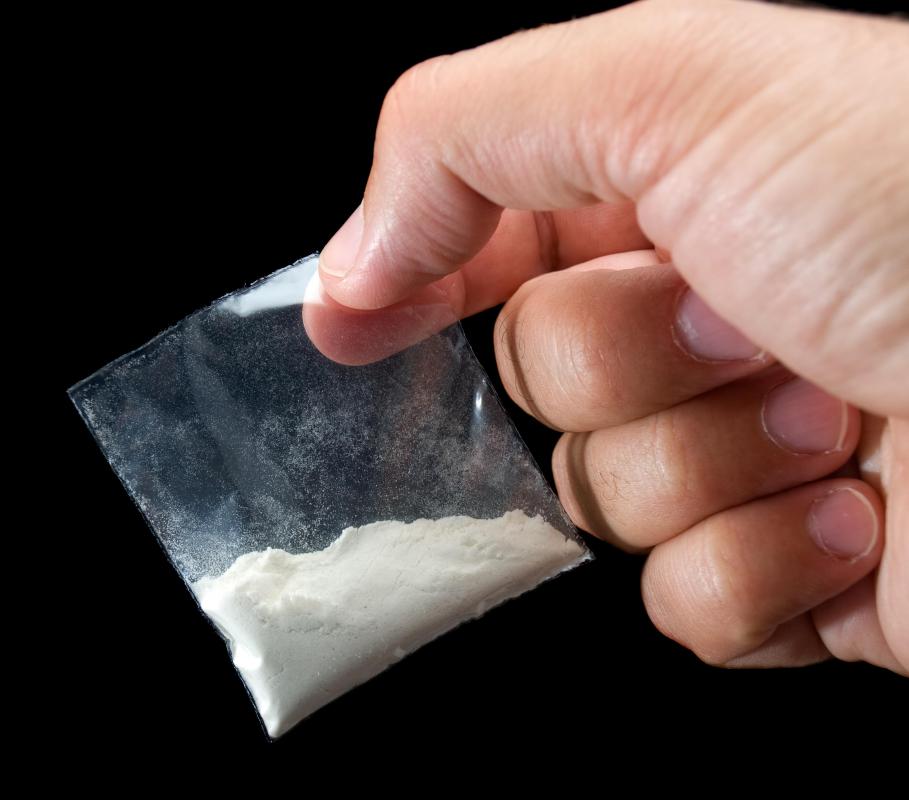At TheHealthBoard, we're committed to delivering accurate, trustworthy information. Our expert-authored content is rigorously fact-checked and sourced from credible authorities. Discover how we uphold the highest standards in providing you with reliable knowledge.
What Is the Dopamine Hypothesis of Schizophrenia?
The dopamine hypothesis of schizophrenia is a theory about how people develop that mental illness. Dopamine is an important neurotransmitter in the brain that moderates basic behaviors like motivation. This hypothesis argues that overproduction or excessive release of dopamine is part of what causes schizophrenia. Evidence from brain imaging and pharmacology supporting the hypothesis includes the observation that drugs that cause psychosis also cause increased activity in neural pathways that depend on dopamine. Scientists do not agree on whether the dopamine hypothesis is correct.
Dopamine is a major catecholamine neurotransmitter in the brains of mammals, including humans, and is essential to the neural pathways that control voluntary movement and moderate many behavioral systems. Schizophrenia is a mental illness characterized by symptoms such as hallucinations and paranoia, often rendering its sufferers unable to function in everyday life. It can sometimes be treated by psychiatric drugs, many of which block specific neurotransmitter actions, changing the brain's chemistry. The dopamine hypothesis of schizophrenia is a medical theory arguing that this mental illness results from malfunction of the neurons that manufacture dopamine or rely on it in their normal physiology.

The dopamine hypothesis derives in part from observations about the ways in which drugs used to treat mental illness work. Some drugs bind to dopamine receptors on various neurons, activating them, while other drugs bind to the same receptors but prevent them from being activated. Drugs such as cocaine and many other psychoactive substances cause an increase in dopamine production that correlates with a rise in symptoms that resemble schizophrenia, such as hallucinations and paranoia. Functional brain imaging and some pathology tests indicate rises in dopamine production and circulation during schizophrenic symptom manifestations in patients, as well.

Dopamine is especially important to four major pathways of interconnected neurons in the brain, including the mesocortical and mesolimbic pathways, both of which are linked to reward-seeking and motivated behaviors. In the dopamine hypothesis of schizophrenia, the lack of normal organization and motivation is attributed to malfunction of the mesocortical pathway, perhaps spreading to the closely related mesolimbic reward pathway, which moderates normal motivation and addictive behaviors. While schizophrenia has genetic factors and environmental factors, supporters of the dopamine hypothesis point to relatively high preponderance of the catecholamine in the abnormal brain systems of schizophrenics.

Critics of the dopamine hypothesis of schizophrenia note that drugs that block dopamine receptors don't always reduce schizophrenic symptoms. Many of the psychoactive or psychotropic drugs successfully used to treat schizophrenia are substituted phenethylamines, a chemical group that affects receptors for many chemicals within the brain, not just dopamine. Neuroanatomical studies of schizophrenic brains reveal significant variations in gross shape and structure of certain regions, which may indicate a different origin for this disease than changes in dopamine pathways. There is no scientific consensus on the role of dopamine.
AS FEATURED ON:
AS FEATURED ON:
















Discuss this Article
Post your comments